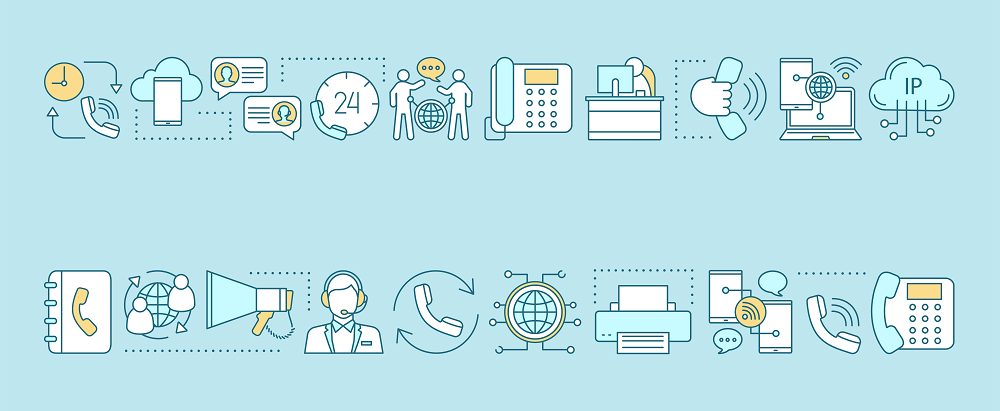
Distributors Adding Direct to Consumer (DTC) Channels Need Automation
A growing number of distributors are expanding their reach beyond the business-to-business (B2B) approach with the addition of direct to consumer (DTC) channels. Selling directly to consumers is a valuable proposition with lots of potential. It can also prove challenging without the proper technology tools.
A new DTC channel will only be beneficial if a business is set up to handle it. This includes processing and fulfilling more orders, interfacing with new customers through a comprehensive omnichannel strategy, and building automation into core business processes for optimal efficiency and productivity.
A modern, cloud-based enterprise resource planning (ERP) solution is a valuable tool for distributors looking to start offering DTC. ERP systems will seamlessly handle back-office processes across all business departments, ensuring B2B and core business systems are optimized. It will also create a single source of truth, a federated, centralized set of data that may be shared among all departments and business systems.
Beyond that, ERP will help distributors expand their business and create a solid foundation for reaching new customers and geographies, processing and fulfilling more orders and establishing an omnichannel presence capable of meeting a variety of customer interaction preferences.
A DTC Success Story
Countrywide Tire is a good example of a distributor that used ERP to optimize their core business processes and eventually expand beyond B2B to a DTC model. The company, the largest inner tube distributor in the U.S., chose the SAP Business ByDesign ERP platform to simplify and automate its back-end systems and processes. The result was cost savings, efficiency increases and automation.
The company didn't stop there. Countrywide wanted to expand its reach with a DTC model, and its ERP solution was a key tool in its ability to do so.
“We felt like the future was going to be doing direct container shipments from our factory right to the customer’s door,” says Eric Johnson, vice president of operations for Countrywide. “That wasn't something that our old system was able to handle.”
The company leveraged the SAP Business ByDesign platform for its new business model, and now counts DTC with bringing in roughly 20 percent of its overall revenue.
ERP for DTC
A cloud-based ERP platform lays the foundation for streamlined, centralized and automated back-end business processes. It can be easily built upon to integrate and automate new DTC business channels including website sales and marketplace integrations.
ERP offers a host of benefits for constructing an automated, consumer-facing business channel. It helps improve customer engagement and facilitates more positive interactions since all data on customer purchases, behavior and preferences is aggregated and analyzed. Distributors can use this to their advantage to proactively interact with customers through their preferred channels.
Along those same lines, ERP empowers workers with knowledge that expands across the entire business. This gives customer service representatives the tools and data they need to create better and more meaningful customer interactions. It also empowers workers in other departments to focus on higher-level business objectives, since repetitive tasks and reporting will be automated.
ERP streamlines the entire supply chain, connecting distributors seamlessly with suppliers, partners, customers and online marketplaces. It is also easy to integrate with electronic data interchange (EDI), the digital standard for information exchange throughout the supply chain. This improves efficiency, increases productivity, and helps reduce costs and waste. And it lays the foundation for modern, optimized back-end systems and processes, a critical building block for modern distributors.
When distributors decide to branch out into the DTC space, a modern ERP platform supports new monetization opportunities including ecommerce, online marketplaces, subscription models and omnichannel communications.
On the warehouse side of operations, when an ERP platform is integrated with a comprehensive warehouse management system (WMS) like Loxodo, operations are streamlined, automated and optimized throughout the warehouse and into the supply chain. This is a key tool for distributors who want to be prepared to handle the potentially large orders and quick picking and fulfillment times that come with the DTC sales channel.
The Loxodo WMS is designed specifically to integrate with the SAP Business One and SAP Business ByDesign ERP platforms, making it an ideal choice for distributors interested in pursuing a DTC model.
Modern distributors need to streamline all aspects of their businesses to remain agile and competitive in an increasingly disruptive and aggressive global marketplace. Having solid core business practices and a strong B2B channel in place positions them to expand their reach into the DTC marketplace.
A cloud-based ERP solution ensures back-end business operations are digitized, automated and optimized. It is a solid base for distributors that wish to modernize their operations and move into new markets and channels like DTC.
To learn more about how to modernize a wholesale distribution business to reach new channels and markets like DTC, check out our "Modernization Guide for Wholesale Distributors."
The guide discusses disruptions in the distribution sector due to digital transformation and globalization, and how businesses can use technology tools like ERP to expand their reach into new channels like DTC as well as new geographic markets.

